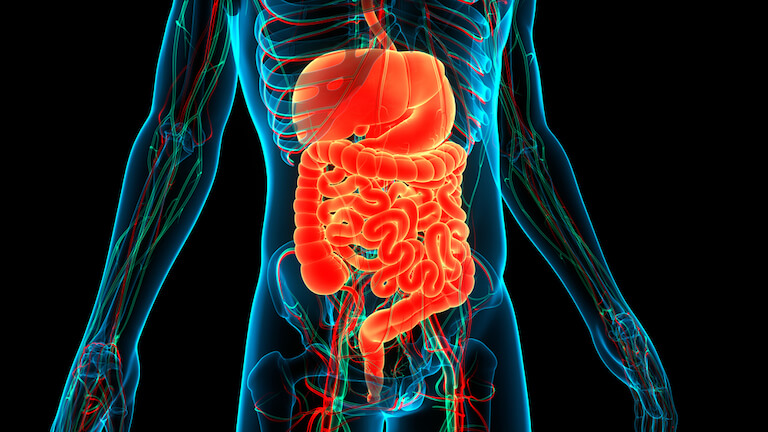Digestive health is fundamental to our overall well-being, influencing everything from our mood to our immunity. Yet, many of us only start paying attention to our digestive system when discomfort arises. Symptoms like bloating, irregularity, or discomfort after eating signal that our digestive system may need support. Fortunately, there are natural and straightforward ways to enhance our digestive health that can easily be integrated into our daily routines.
This detailed blog will explore several natural strategies to bolster your digestion. From the basics of mindful eating to leveraging the power of herbal remedies, these tips are practical and accessible. If you’re struggling with digestive issues, know that you are not alone. Dr. Tony Aboudib from the Hyperbaric Wellness Center offers expert advice and customized treatments to help you manage your digestive health effectively.
Deep Dive into Digestion
Understanding the mechanics of digestion is crucial before we can explore how to improve it. Digestion is the complex process of breaking down food into absorbable nutrients, which are utilized for energy, growth, and cell repair. This process starts in the mouth, with chewing and saliva action. It continues down the esophagus to the stomach, where acids break down the food further, and then to the intestines, where nutrients are absorbed, and wastes are prepared for excretion.
Optimal digestion means we rarely notice these processes. Still, when our digestive health is compromised due to poor eating habits, stress, or insufficient nutrients, symptoms like gas, bloating, and constipation can become prominent. These issues highlight the need for mindful dietary choices and lifestyle habits that support rather than hinder our digestive system.
Mindful Eating: A Profound Shift in Our Relationship with Food
Mindful eating is more than a practice—it’s a profound shift in our relationship with food. It involves engaging fully with the eating experience, paying attention to the colors, smells, textures, flavors, and even the sounds of what we eat, and tuning into our body’s cues of hunger and fullness.
Eating mindfully makes you likely to chew your food more thoroughly, the crucial first step in digestion. Proper chewing breaks down food into manageable pieces and mixes it with saliva, where enzymes begin to work on carbohydrates, easing the later stages of digestion.
This approach also means eating without distractions like television or smartphones. This allows you to listen more closely to your body’s signals of fullness, thus preventing overeating and the digestive discomfort that often follows. Moreover, mindful eating helps mitigate stress, a significant disruptor of digestive processes. Eating in a relaxed, focused state enables more efficient digestion.
Incorporating mindfulness into your meals is simpler than it sounds. It can begin with taking a few deep breaths before eating, dedicating time to sit down away from distractions, and truly savoring each bite. These modest adjustments can profoundly impact your digestive health and overall well-being, making mealtime a nourishing experience for both body and mind.
Incorporating Fiber: Essential for Digestive Harmony
Fiber is an indispensable element of a healthy diet, pivotal in sustaining optimal digestive function. Surprisingly, more than 70% of Americans fall short of the daily recommended fiber intake, which can significantly disrupt digestive health. Found abundantly in fruits, vegetables, whole grains, and legumes, fiber facilitates regular bowel movements by adding bulk to stool and prevents common digestive disturbances like constipation.
Fiber is categorized into two types—soluble and insoluble—each serving unique functions within the digestive system. Soluble fiber dissolves in water, forming a gel-like substance that aids in lowering cholesterol and managing blood sugar levels. This type of fiber is abundant in foods such as oats, apples, carrots, and beans. Insoluble fiber, on the other hand, does not dissolve in water. It speeds the passage of food through the stomach and intestines, aiding in efficient digestion and excretion. It’s predominantly found in whole wheat flour, nuts, and vegetables like cauliflower and potatoes.
The importance of fiber extends beyond aiding digestion. A diet rich in fiber can also help maintain a healthy weight, lower the risk of heart disease, and reduce the incidence of certain types of cancers. Given the prevalence of digestive disorders in the United States—which affect up to 70 million people—increasing your fiber intake is not only beneficial but essential for overall health.
To effectively boost your fiber intake, consider incorporating an additional serving of vegetables into each meal, opting for whole grain over refined grain products, and choosing fiber-rich snacks such as berries or apples. It’s crucial to accompany increased fiber consumption with ample water intake; water helps fiber function effectively, softening stools and making them easier to pass. This simple dietary adjustment can significantly enhance digestive health, providing a foundation for better overall well-being.
Herbal Remedies: Harnessing Nature’s Digestive Powers
Herbs have been an integral part of traditional medicine for centuries, celebrated for their ability to enhance digestive health effectively. Integrating specific herbs into your daily routine can significantly alleviate digestive discomfort, enhance nutrient absorption, and bolster overall digestive health.
Ginger: Renowned for its digestive benefits, ginger is a staple in natural health practices. It can alleviate nausea, reduce gas, and activate digestive enzymes. Contemporary studies validate these traditional uses, revealing that ginger can expedite gastric emptying, which is especially advantageous for those suffering from indigestion. Incorporating ginger is as simple as enjoying a cup of ginger tea post-meal or adding fresh ginger to your cooking.
Peppermint: Known for its soothing properties, peppermint can relax the gastrointestinal tract muscles thanks to its antispasmodic qualities. This makes it an invaluable herb for individuals with Irritable Bowel Syndrome (IBS). Research indicates that peppermint oil can diminish the intensity of IBS symptoms, including abdominal pain and bloating. Experience peppermint’s benefits by sipping peppermint tea or taking peppermint oil capsules, readily available in health stores.
Fennel: Particularly effective in easing bloating and gas, fennel seeds exhibit carminative properties that prevent gas formation in the digestive tract. Chewing fennel seeds post-meal or drinking fennel tea can substantially aid digestion.
Turmeric: Celebrated for its anti-inflammatory effects, turmeric is beneficial for digestive conditions linked to inflammation, such as Inflammatory Bowel Disease (IBD). Curcumin, the active ingredient in turmeric, is proven to reduce gut inflammation and enhance digestive function. Adding turmeric to your diet or taking it as a supplement can foster a healthier digestive system.
To dive deeper into how these and other herbs can support your health, revisit our comprehensive blog on herbal remedies that enrich well-being and digestive health here.
Hydration: A Simple Secret to Digestive Wellness
Maintaining proper hydration is crucial for digestive health. Water is fundamental in breaking down food so nutrients can be absorbed efficiently. When we’re well-hydrated, our digestive system can move waste more smoothly, preventing constipation and supporting regular bowel movements.
Dehydration can disrupt this smooth process, leading to bloating, hard stools, and sluggish digestion. This is particularly critical considering that digestive health issues affect millions of Americans. By ensuring adequate water intake, we can mitigate these problems and promote a more effective digestive process.
Drinking water consistently throughout the day, particularly before meals, is beneficial as it prepares the digestive tract for the food to come. However, moderation during meals is key; too much water can dilute digestive enzymes and stomach acids.
Beyond plain water, incorporating hydrating fluids like herbal teas and broths can enhance hydration. Foods high in water content, such as cucumbers, melons, and oranges, also contribute significantly to daily fluid intake. Herbal teas offer the added advantage of herbs like ginger or peppermint, which support digestion and can alleviate symptoms like bloating and gas.
Tailoring water intake to individual needs is important—factors such as physical activity, climate, and overall health dictate how much you should drink. For those increasing their fiber intake, it’s crucial to pair it with adequate water to maximize the benefits of fiber in digestive health.
By prioritizing hydration, you support your digestive system and enhance your overall health, making it a simple yet powerful tool for maintaining digestive wellness.
Exercise: Energizing Your Digestive Health
Engaging in regular physical activity is crucial for promoting healthy digestion. Exercise stimulates the muscles in the gastrointestinal tract, enhancing the movement of food and reducing the incidence of constipation and bloating. It also improves overall digestive function through increased blood flow to your organs.
Simple activities such as walking, cycling, or practicing yoga can significantly boost digestive efficiency. For example, a brisk walk after eating helps stimulate the digestive system and can alleviate feelings of heaviness or sluggishness after meals. Moreover, yoga offers specific benefits for digestion, such as a pose that twists or bends the body and gently massages the internal organs, relieving gas, bloating, and constipation. These exercises also foster relaxation, which is vital since stress can exacerbate digestive conditions like Irritable Bowel Syndrome (IBS).
Beyond aiding digestion, regular movement helps maintain a healthy body weight, which is essential in preventing more severe digestive issues such as gastroesophageal reflux disease (GERD) and gallstones. It’s essential to understand that you don’t need intense physical exertion to enjoy these benefits; consistent, moderate activity like a daily 20- to 30-minute walk can profoundly impact your digestive health.
Incorporating regular exercise into your routine doesn’t just keep the digestive system running smoothly; it enhances your overall wellness, making it a powerful, natural tool for maintaining digestive health.
Pro Tip: A short walk following meals not only aids digestion but can also moderate blood sugar levels, helping you avoid energy dips and maintain steady vitality throughout the day.
When to Seek Professional Guidance
Exploring natural strategies can often significantly enhance your digestion, yet there are circumstances where it becomes crucial to seek professional advice. Suppose you’re persistently experiencing symptoms like chronic bloating, severe abdominal pain, unexplained weight loss, or sudden changes in bowel habits. In that case, these may be indicators of more severe underlying conditions requiring medical attention.
Digestive disorders such as Irritable Bowel Syndrome (IBS), Gastroesophageal Reflux Disease (GERD), and Inflammatory Bowel Disease (IBD) profoundly affect the quality of life and generally demand more than mere lifestyle adjustments. These conditions often necessitate a multifaceted approach involving dietary changes, stress management, medications, or specialized treatments to manage effectively.
At Hyperbaric Wellness Center, Dr. Tony Aboudib is dedicated to offering expert guidance to enhance your digestive health through a comprehensive, holistic approach. Whether identifying food sensitivities, recommending appropriate supplements, or creating a personalized nutrition and lifestyle plan, Dr. Aboudib can provide the necessary support and expertise.
Embrace a Healthier Digestive Future
Taking proactive steps to support your digestive health lays a foundation for overall wellness, and implementing simple, natural strategies can profoundly impact your daily life. However, it’s crucial to recognize when professional help is needed.
Persistent digestive issues shouldn’t be ignored, as they can escalate and severely disrupt your life. Dr. Tony Aboudib at Hyperbaric Wellness Center specializes in functional medicine, focusing on identifying the root causes of your digestive ailments to offer tailored, practical solutions.
Take Action Now
Don’t let digestive issues control your life. Schedule your free consultation with Dr. Tony Aboudib at Hyperbaric Wellness Center today, and start your journey towards optimal digestive health. Experience the benefits of a personalized approach to digestive care and reclaim the joy of a healthy, active life.
For further reading on dietary fibers and digestive health, explore our curated list of resources:
Borkovskyi, R. O., & Berezovsky, A. (2023). Perspectives of the use of macro- and micro elements in poultry feeding. https://www.semanticscholar.org/paper/Perspectives-of-the-use-of-macro-and-micro-elements-Borkovskyi-Berezovsky/8a3d9915a2dbb94ec5e3b56cbe372e94cb42bbd8
Clemens, R., Kranz, S., Mobley, A. R., Nicklas, T. A., Raimondi, M. P., Rodriguez, J. C., Slavin, J. L., & Warshaw, H. (2012). Filling America’s fiber intake gap: summary of a roundtable to probe realistic solutions with a focus on grain-based foods. The Journal of nutrition, 142(7), 1390S–401S. https://doi.org/10.3945/jn.112.160176
Poon, D., Law, G. R., Major, G., & Andreyev, H. J. N. (2022). A systematic review and meta-analysis on the prevalence of non-malignant, organic gastrointestinal disorders misdiagnosed as irritable bowel syndrome. Scientific reports, 12(1), 1949. https://doi.org/10.1038/s41598-022-05933-1

